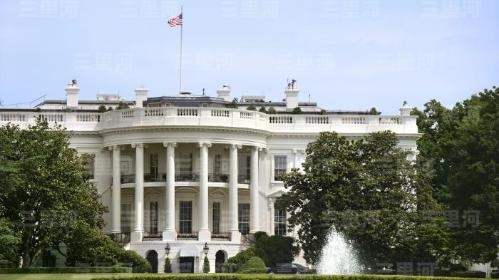EconoScope | U.S. tariff flip-flops mirror broad strategic turmoil
(ECNS) -- U.S. President Donald Trump announced plans to raise import tariffs on steel and aluminum to 50% on Friday.

In a matter of days, the U.S. tariff policy took another sharp turn while a series of court rulings pushed the White House trade strategy into deeper disarray.
First, the U.S. Court of International Trade halted most tariff measures. Then, in response to the government's appeal, the U.S. Court of Appeals for the Federal Circuit temporarily suspended the injunction. Shortly after, another federal court ruled that the president lacks the authority to impose tariffs using emergency powers, ordering a halt to enforcement in two specific cases.
These back-and-forth decisions have become increasingly frequent in recent months, turning chaos into what some observers now call the "new normal" in U.S. trade policy.
Many analysts describe the legal battles over tariffs as a test of the limits of presidential executive power.
Three judges from the U.S. Court of International Trade concluded that most of the new tariffs are illegal and that the president cannot invoke the International Emergency Economic Powers Act to justify them.
The White House pushed back, arguing that these unelected judges should not interfere with presidential decisions. It even warned that judicial intervention in sensitive foreign or trade negotiations could paralyze the normal functioning of the U.S. government.
Uncertainty surrounding -U.S. tariff policy has already spilled over into the global economic arena.
Washington has been using tariffs to pressure other countries into negotiations. But with court rulings casting doubt on the legality of such moves, America's leverage is eroding.
Even if the court's injunction is only temporary, the case could eventually reach the U.S. Supreme Court. However, the prolonged internal tug-of-war is making it increasingly difficult for the U.S. government to achieve its trade goals.
According to Business Insider, JPMorgan Chase CEO Jamie Dimon warned about the threat posed by "enemies within," stating, "What I'm really worried about is us. Can we get our own act together? Our own values, our own capabilities, our own management."
Small businesses are particularly vulnerable. The U.S. Chamber of Commerce cited Traci Tapani, co-president of Wyoming Machine, as saying that added cost pressures from tariffs — on top of inflation and rising wages — are hurting competitiveness and profitability.
According to the latest U.S. Department of Commerce data, corporate profits fell by $118.1 billion in the first quarter, marking the steepest decline since the fourth quarter of 2020. If tariff policies persist, the damage is expected to deepen further.
Are tariffs truly economic levers, bargaining chips, or merely political posturing? Even within the White House, the answer seems unclear. Ongoing power struggles and shifting policies have left markets on edge and American businesses walking a tightrope.
The tariff drama orchestrated by the White House is far from over, but the costs the U.S. must bear are only just beginning to emerge.
(By Gong Weiwei)

